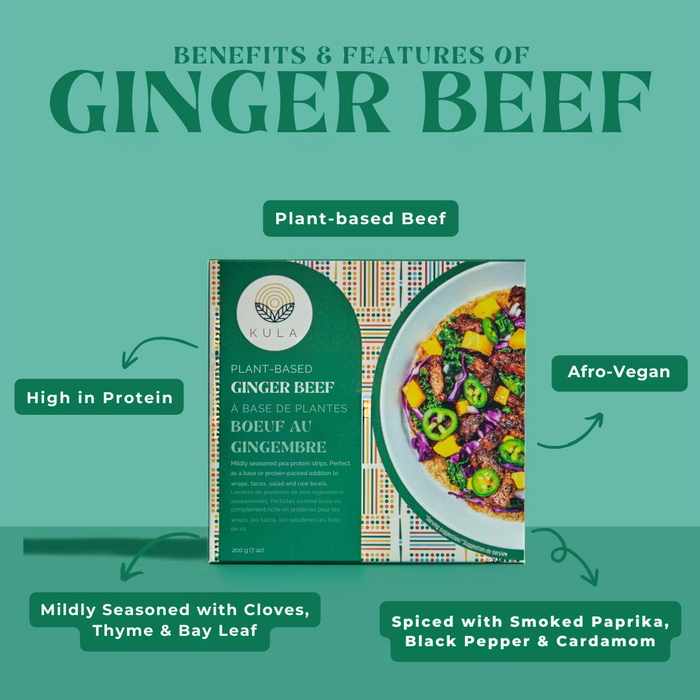7 Flavor-Packed BBQ Sauces That Are Perfect for Meatless Grilling
7 Flavor-Packed BBQ Sauces That Are Perfect for Meatless Grilling
Blog Article
Everything About Healthy Food: Advantages of Enjoying Plant Based Options
The conversation bordering plant-based diets has actually gotten significant attention in the last few years. Several individuals are exploring the potential health and wellness benefits, dietary benefits, and ecological effects related to these nutritional options. As individuals come to be much more knowledgeable about their food's influence on health and sustainability, concerns arise regarding the usefulness of adopting such a lifestyle. What particular changes can one anticipate, and exactly how might these selections reshape not only individual wellness yet likewise the world's future?
Recognizing Plant-Based Diet Plans
Although lots of people associate plant-based diet regimens primarily with vegetarianism or veganism, these diets can include a wide variety of eating patterns that focus on whole, minimally processed plant foods. Such diet plans commonly consist of fruits, veggies, whole grains, legumes, seeds, and nuts, while restricting or eliminating animal items. This flexibility allows individuals to customize their dietary selections according to personal preferences and nutritional needs. Some may embrace a largely plant-based diet regimen while still periodically consuming meat or dairy, usually described as a flexitarian technique. The emphasis stays on incorporating more plant foods, which can cause a varied range of meals and flavors. Comprehending these different interpretations of plant-based eating is essential for valuing its access and allure in contemporary food culture.
Health And Wellness Conveniences of Plant-Based Foods
The wellness benefits of plant-based foods are substantial, providing a nutrient thickness benefit that sustains general well-being. Research suggests that these foods can boost heart health and play a vital duty in efficient weight management. By incorporating much more plant-based choices, people might enhance their nutritional selections and promote long-lasting health and wellness.
Nutrient Density Advantage
Nutrient thickness plays a vital role in the health advantages of plant-based foods, making them an engaging selection for those looking for a well balanced diet regimen. Plant-based foods, such as fruits, veggies, vegetables, nuts, and whole grains, are usually rich in crucial vitamins, minerals, and antioxidants while being lower in calories. This high nutrient thickness allows individuals to consume less calories while still satisfying their nutritional needs. Additionally, these foods are packed with nutritional fiber, promoting gastrointestinal health and aiding in weight monitoring. By integrating nutrient-dense plant-based alternatives, customers can improve their overall health, sustain their body immune systems, and lower the threat of persistent conditions. Eventually, the nutrient thickness of plant-based foods underscores their significance in a health-conscious way of living.
Heart Health And Wellness Enhancement

Weight Management Assistance
In enhancement to advertising heart health and wellness, a plant-based diet plan can considerably aid in weight administration. This dietary strategy emphasizes entire foods such as fruits, vegetables, beans, nuts, and whole grains, which are usually lower in calories and higher in fiber contrasted to animal-based items. The high fiber material aids boost satiety, minimizing overall calorie consumption. Plant-based diet plans are typically rich in important nutrients while reduced in harmful fats, making it much easier to preserve a healthy weight. Research shows that individuals who take on a plant-based way of living have a tendency to have reduced body mass indexes (BMIs) and experience even more successful weight reduction compared to those who take in meat-heavy diet regimens. Embracing plant-based choices is a strategic option for reliable weight management.
Nutritional Worth of Plant-Based Active Ingredients
Plant-based components are abundant in crucial nutrients, offering a diverse selection of vitamins, minerals, and anti-oxidants that add to overall health. A contrast of healthy protein sources exposes that while animal items are commonly considered as remarkable, numerous plant-based alternatives provide sufficient protein and other beneficial substances. Recognizing the dietary value of these active ingredients can aid individuals make educated nutritional options.
Vital Nutrients in Plants
Nutrient-rich components located in plants provide a diverse selection of necessary vitamins and minerals that contribute substantially to overall health. These components are rich in vitamins A, C, and K, which support immune function, vision, and blood clot, specifically. Furthermore, plants supply essential minerals such as potassium, magnesium, and calcium, crucial for heart health, muscle feature, and bone stamina. The existence of fiber in plant-based foods aids food digestion and promotes a healthy and balanced digestive tract microbiome. Anti-oxidants, found generously in fruits and vegetables, help fight oxidative tension and minimize swelling. Furthermore, numerous plant foods are reduced in calories yet high in nutrients, making them an excellent option for those seeking to keep a healthy weight while making sure excellent nutrient consumption.
Contrasting Healthy Protein Sources
Healthy protein sources differ considerably in their dietary profiles, with plant-based components supplying unique advantages. Unlike pet proteins, which frequently have hydrogenated fats and cholesterol, plant healthy proteins tend to be lower in these unhealthy parts. Legumes, nuts, seeds, and entire grains are abundant in crucial amino acids, fiber, vitamins, and minerals. As an example, lentils offer high healthy protein material alongside substantial iron and folate, while quinoa is a complete protein, supplying all 9 vital amino acids. In addition, plant-based healthy proteins are often come with by anti-oxidants and phytochemicals that support overall wellness. The change to plant-based protein sources not only improves nutritional consumption however additionally lines up with lasting dietary techniques, decreasing ecological impact and promoting long-lasting health benefits.
Environmental Effect of Plant-Based Consuming
As awareness of environment adjustment grows, lots of people are checking out lasting nutritional options that can significantly minimize their ecological footprint. Plant-based eating has actually arised as a substantial contributor to minimizing greenhouse gas emissions, which are mostly connected with Sugar Free Sauces livestock manufacturing. The farming of fruits, vegetables, beans, and grains usually needs less resources, such as water and land, compared to pet farming. Furthermore, plant-based diets can cause decreased deforestation, as less land is required for grazing animals or expanding pet feed. By changing in the direction of plant-based alternatives, consumers can support biodiversity and advertise much healthier environments. In general, embracing plant-based consuming not only advantages personal wellness but likewise stands for an important step towards ecological sustainability and preservation efforts.
Overcoming Common Misconceptions
While many individuals recognize the advantages of a plant-based diet, several misunderstandings usually hinder them from totally accepting this way of life. An usual idea is that plant-based diet regimens do not have adequate healthy protein; nonetheless, various plant resources, such as vegetables, nuts, and tofu, supply ample protein. In addition, some presume that this diet regimen is pricey, when actually, staples like beans, rice, and seasonal vegetables can be fairly budget-friendly. An additional mistaken belief is that plant-based consuming is excessively limiting, whereas it in fact supplies a diverse range of flavors and foods. Lastly, numerous stress that a plant-based diet regimen may bring about shortages, yet with correct preparation, people can acquire all needed nutrients, including minerals and vitamins, while taking pleasure in a variety of tasty dishes.
Tips for Transitioning to a Plant-Based Lifestyle
Making the change to a plant-based way of life can be an enhancing experience, though it commonly requires some support to browse the preliminary adjustments. People are urged to begin slowly, incorporating more fruits, vegetables, beans, and whole grains right into their dishes while lowering meat and dairy consumption. Meal planning is vital; preparing a regular food selection can help alleviate the change and protect against last-minute undesirable options. Discovering cooking approaches and new dishes can also maintain and enhance the experience exhilaration regarding plant-based consuming. Furthermore, joining support system or areas can supply motivation and share useful ideas. Ultimately, staying informed about nutrition guarantees balanced dishes, preventing deficiencies while fostering a healthy and balanced, rewarding plant-based way of living.
Delicious Plant-Based Dish Concepts
Discovering tasty plant-based meal concepts can motivate people to accept a more healthy diet regimen. One preferred option is a hearty quinoa salad, featuring cherry tomatoes, cucumber, and a zesty lemon-tahini dressing. An additional favorite is a mouthwatering lentil stew, packed with carrots, celery, and aromatic natural herbs, perfect for a reassuring dinner. For morning meal, over night oats made with almond milk, chia seeds, and topped with fresh berries supply a healthy start to the day. Additionally, a vibrant vegetable stir-fry with tofu and a range of vivid veggies can be a fast yet satisfying meal. Lastly, creamy avocado toast on whole-grain bread, sprayed with seeds and spices, supplies an easy yet delicious snack. These dishes showcase the variety and splendor of plant-based eating.

Often Asked Inquiries
Can a Plant-Based Diet Offer Sufficient Healthy Protein?
The concern of whether a plant-based diet regimen can supply sufficient protein prevails. Countless sources, consisting of beans, nuts, seeds, and whole grains, can meet healthy protein requires effectively, sustaining a nutritious and balanced diet plan for individuals.
Are Plant-Based Diets Ideal for Kid?
The viability of plant-based diet plans for youngsters depends on careful preparation. Appropriate nutrients should be guaranteed, including minerals, vitamins, and proteins. With correct guidance, such diets can sustain healthy growth and advancement in kids.
Just how Do I Dine Out on a Plant-Based Diet plan?
Eating out on a plant-based diet regimen entails looking for dining establishments with diverse menus, requesting alterations, and discovering vegan-friendly options. Preparation in advance and communicating nutritional choices can enhance the eating experience while keeping dietary choices.
What Are Typical Irritants in Plant-Based Foods?
Usual allergens in plant-based foods consist of soy, gluten, nuts, and seeds - Plant Based Beef. People adhering to a plant-based diet regimen must be aware of these irritants and check out labels very carefully to stay clear of unfavorable responses and guarantee risk-free intake
Can Plant-Based Diets Aid With Weight Reduction?
Study indicates that embracing a plant-based diet may promote fat burning due to its generally reduced calorie density and greater fiber material. This combination can improve satiety, assisting people handle their caloric consumption properly. Several people connect plant-based diets mostly with vegetarianism or veganism, these diet regimens can encompass a vast range of eating patterns that prioritize whole, minimally refined plant foods. Nutrient density plays a crucial function in the health advantages of plant-based foods, making them a compelling selection for those looking for a balanced diet. Plant-based diets have been revealed to noticeably boost heart health and wellness, as they typically contain components that support cardio function. In addition to advertising heart wellness, a plant-based diet can considerably help in weight monitoring. An usual belief is that plant-based diet plans do not have sufficient healthy protein; however, countless plant sources, such as beans, nuts, and tofu, provide enough healthy protein.
Report this page